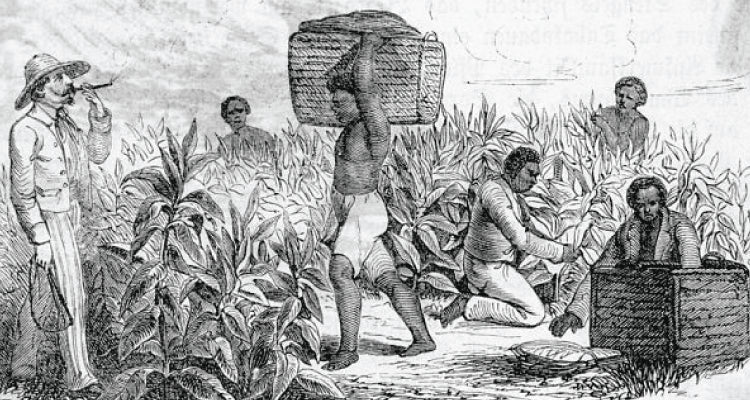In the records of Indian history, a heart-rending tale unfolds - a story of how British taxes on rice sowed the seeds of a devastating famine that shook our nation to its core. Picture a time when our fields were once adorned with an abundance of crops, and our communities thrived on the fruits of our labor. However, the arrival of British colonial rule brought with it a dark cloud that cast a shadow over our agricultural heritage.
Rice, the very staple that sustained millions, became the target of exorbitant taxes, diverting resources away from our farms and communities. The British East India Company saw an opportunity to exploit our rice crop, turning it into a lucrative commodity for export. As a result, the domestic market suffered, leading to scarcity and rising prices. With the burden of oppressive taxes on their shoulders, our farmers faced an uphill battle to make ends meet.
The tragic consequences of these policies came to a head during the Bengal Famine of 1943. It was a famine that did not result from a physical shortage of food, but rather from the ineptitude and indifference of the British authorities. Despite the escalating crisis, rice continued to be exported, leaving millions of Indians hungry and desperate for sustenance.
Imagine the plight of our farmers, once stewards of a self-sustaining agricultural system, now forced to forsake traditional food crops for cash crops like indigo and jute to meet their tax obligations. This shift not only disrupted our food security but also weakened the very fabric of our rural society. The symbiotic relationship between farming and community was severed, leaving us vulnerable to the whims of exploitative middlemen.
Agricultural historian Devinder Sharma explains, "The imposition of taxes on rice destroyed the traditional self-sustaining agricultural system in India, leaving farmers with no option but to grow cash crops to meet their obligations. This not only disrupted food security but also weakened the very fabric of rural society."
As highlighted in an article by The Guardian, "The colonial administration's policies led to a concentration of land ownership in the hands of a few, making the majority dependent on landlords for their survival. This dependency further stripped away the autonomy of Indian farmers and disrupted the traditional social order."
💡 Yet, amidst this dark chapter of our history, we find rays of hope and resilience. The spirit of our ancestors who toiled the land with wisdom and care lives on, and it is time to rekindle that flame. We must reclaim our heritage of sustainable farming practices, where communities work hand in hand to grow nourishing crops and preserve our diverse seeds. The echoes of the past beckon us to nurture our land and protect our communities.
To explore further into the depths of this gripping history and learn about the heroic stories of our farmers, their wisdom, and the path to reclaiming our agricultural legacy, join us on this journey of discovery. Let us embark together on a quest to understand and honor the roots of our nation's farming traditions, as we strive for a sustainable and thriving future for all.
Ready to unearth more hidden chapters of India's agricultural history? Join us in the next installment of "Blighted Bounty" as we delve deeper into the untold stories that shaped our nation's past and explore the journey towards a brighter and more prosperous future. Discover the triumphs and tribulations of our farmers and the timeless wisdom of ancient practices. Stay tuned for an immersive series that will connect you with the essence of India's rich agricultural heritage. www.elephantinyou.com/blog
More on the famine : https://en.wikipedia.org/wiki/Bengal_famine_of_1943
How rich countries are still exploiting their food resources: https://devinder-sharma.blogspot.com/2023/07/think-of-feeding-humans-first.html?q=famine
In the annals of Indian history, a heart-rending tale unfolds - a story of how British taxes on rice sowed the seeds of a devastating famine that shook our nation to its core. Picture a time when our fields were once adorned with an abundance of crops, and our communities thrived on the fruits of our labor. However, the arrival of British colonial rule brought with it a dark cloud that cast a shadow over our agricultural heritage.
Rice, the very staple that sustained millions, became the target of exorbitant taxes, diverting resources away from our farms and communities. The British East India Company saw an opportunity to exploit our rice crop, turning it into a lucrative commodity for export. As a result, the domestic market suffered, leading to scarcity and rising prices. With the burden of oppressive taxes on their shoulders, our farmers faced an uphill battle to make ends meet.
The tragic consequences of these policies came to a head during the Bengal Famine of 1943. It was a famine that did not result from a physical shortage of food, but rather from the ineptitude and indifference of the British authorities. Despite the escalating crisis, rice continued to be exported, leaving millions of Indians hungry and desperate for sustenance.
Imagine the plight of our farmers, once stewards of a self-sustaining agricultural system, now forced to forsake traditional food crops for cash crops like indigo and jute to meet their tax obligations. This shift not only disrupted our food security but also weakened the very fabric of our rural society. The symbiotic relationship between farming and community was severed, leaving us vulnerable to the whims of exploitative middlemen.
Agricultural historian Devinder Sharma explains, "The imposition of taxes on rice destroyed the traditional self-sustaining agricultural system in India, leaving farmers with no option but to grow cash crops to meet their obligations. This not only disrupted food security but also weakened the very fabric of rural society."
As highlighted in an article by The Guardian, "The colonial administration's policies led to a concentration of land ownership in the hands of a few, making the majority dependent on landlords for their survival. This dependency further stripped away the autonomy of Indian farmers and disrupted the traditional social order."
💡 Yet, amidst this dark chapter of our history, we find rays of hope and resilience. The spirit of our ancestors who toiled the land with wisdom and care lives on, and it is time to rekindle that flame. We must reclaim our heritage of sustainable farming practices, where communities work hand in hand to grow nourishing crops and preserve our diverse seeds. The echoes of the past beckon us to nurture our land and protect our communities.
To explore further into the depths of this gripping history and learn about the heroic stories of our farmers, their wisdom, and the path to reclaiming our agricultural legacy, join us on this journey of discovery. Let us embark together on a quest to understand and honor the roots of our nation's farming traditions, as we strive for a sustainable and thriving future for all.
Ready to unearth more hidden chapters of India's agricultural history? Join us in the next installment of "Blighted Bounty" as we delve deeper into the untold stories that shaped our nation's past and explore the journey towards a brighter and more prosperous future. Discover the triumphs and tribulations of our farmers and the timeless wisdom of ancient practices. Stay tuned for an immersive series that will connect you with the essence of India's rich agricultural heritage. www.elephantinyou.com/blog
More on the famine : https://en.wikipedia.org/wiki/Bengal_famine_of_1943
How rich countries are still exploiting their food resources: https://devinder-sharma.blogspot.com/2023/07/think-of-feeding-humans-first.html?q=famine

